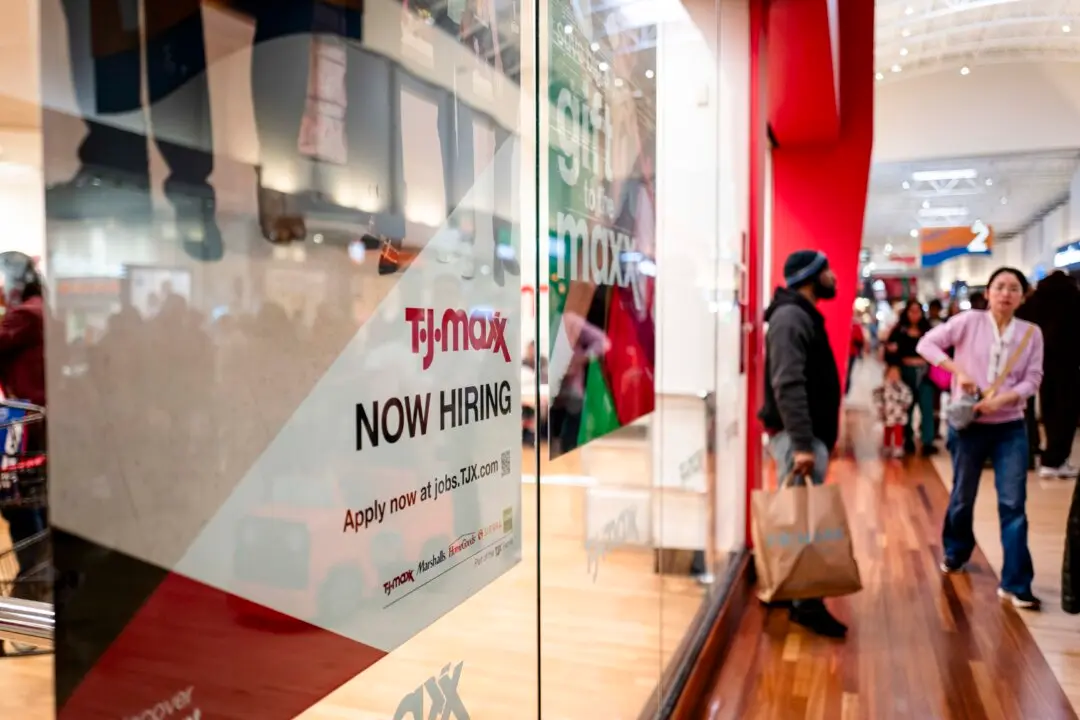A Conference Board indicator of future employment shifts in the United States went up in March, signaling potential growth in jobs over the coming months, according to latest data.
The Board’s Employment Trends Index (ETI), which forecasts likely changes in the job market, jumped to 109.3 in March from 108.47 in February, the think tank said in an April 7 statement.





